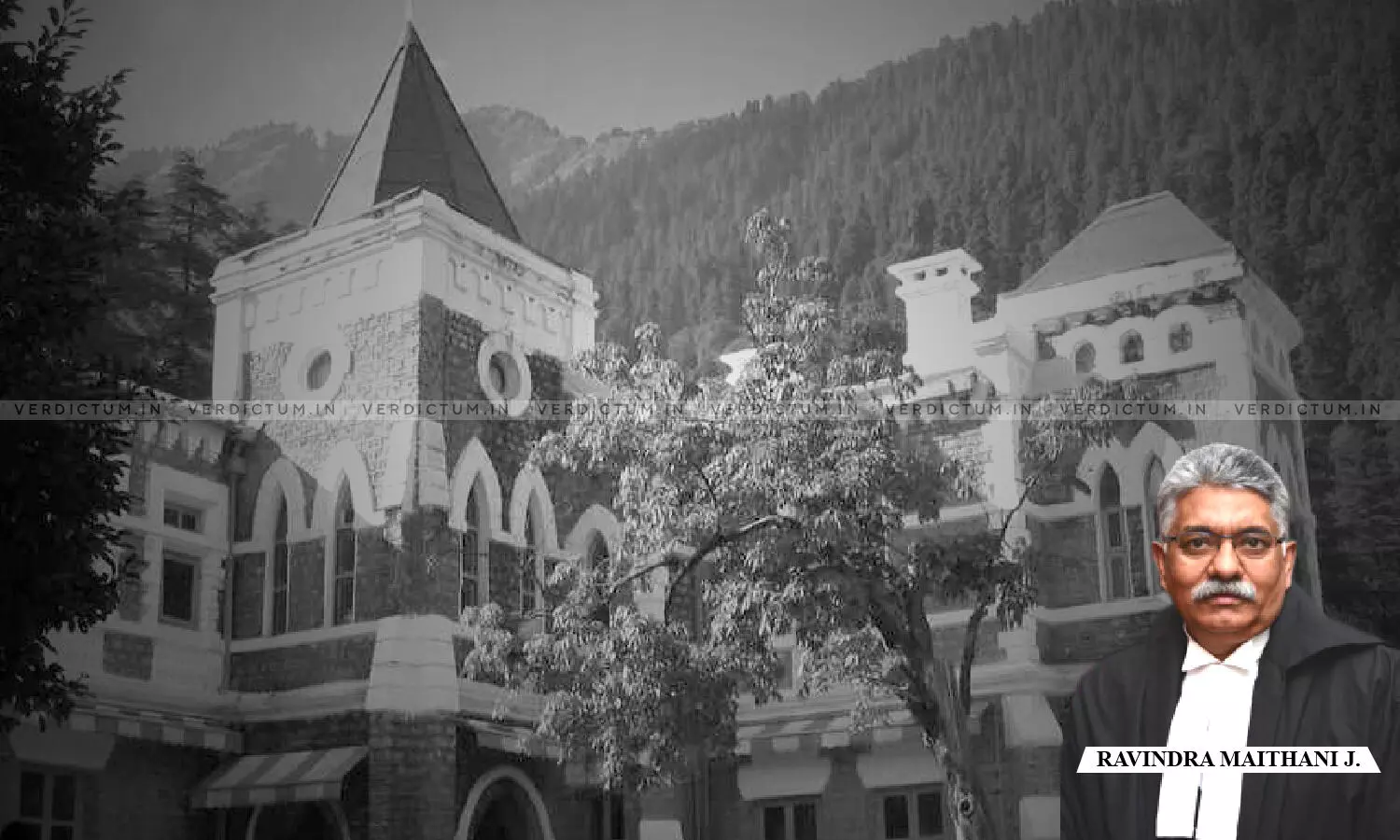
Victim’s Statement Recorded U/S 164 CrPC Can Also Be Used For Corroboration, Not Only Contradiction: Uttarakhand HC Acquits POCSO Accused
 |
|The Uttarakhand High Court said that the statement of the victim recorded under Section 164 of the Criminal Procedure Code (CrPC) can also be used for corroboration and not only contradiction.
The Court was deciding a criminal appeal filed by the accused who challenged the judgment of the Sessions Court by which he was convicted under Sections 363, 366-A, and 376(2)(n) of the Indian Penal Code (IPC) and Sections 5(l), 5(j)(ii), and 6 of The Protection Of Children From Sexual Offences Act, 2012 (POCSO Act).
A Single Bench of Justice Ravindra Maithani observed, “The victim, as PW3, has stated that on the date of incident, in fact, she had some dispute in the house as she had spilled the vegetables. Her mother wanted to beat her. Therefore, she ran away from the house and met the appellant. Thereafter they visited various places and the appellant established physical relations with her. The victim has also proved her statement under Section 164 of the Code. The statement, recorded under Section 164 of the Code may also be used for corroboration not only contradiction, as held in the case of R. Shaji Vs. State of Kerala, (2013) 14 SCC 266. In this case, the Hon’ble Supreme Court held that, “the statement given under Section 164 of the Code may be used for the purpose of corroboration and contradiction.”
The Bench took note of the fact that the victim has not been forcibly taken by the accused and that the prosecution failed to prove that the victim was a child on the date of incident.
Advocate Siddhartha Bankoti appeared on behalf of the appellant/accused while Advocate Vipul Painuli appeared on behalf of the respondent/State.
In this case, a report was lodged by the father of the victim according to which the victim had left her home to answer the call of nature and did not return. When a search was made, a villager had told it to the informant that he had seen the victim going along with the appellant/accused. As per the FIR, the victim was a minor and the accused had enticed her and took her away. Hence, a case was registered under Sections 363 and 366-A of IPC. Subsequently, the statement of the victim under Section 164 of CrPC was recorded.
The victim was medically examined in 2016 when she stated her age to be 18-19 years. She was pregnant at that time and she told the doctor during the medical examination that she on her own had gone with the accused. She further told that he was her husband. Thereafter, charges were framed against the accused. The accused was then convicted and sentenced by the Sessions Court and hence, he approached the High Court.
The High Court in the above context of the case noted, “There is no evidence adduced by the prosecution to establish as to who was the person who got the date of birth of the victim recorded in her school register. PW1, the father of the victim, did not get her daughter admitted in the school. PW3, the victim, herself does not know her date of birth. In fact, she has also not stated as to who got her admitted in the school. There is no application form of the school. PW4, the mother of the victim, could not also tell the date of birth of the victim.”
The Court added that the prosecution utterly failed to prove that the victim was less than 18 years of age on the date of incident and therefore, the prosecution fails to prove that the victim was a child on the date of incident.
“In her statement recorded under Section 164 of the Code, the victim has stated that she was in relationship with the appellant and she left her home and joined the company of the appellant, and, thereafter, they visited various places and established physical relations”, it further observed.
The Court also noted that the victim was not kidnapped and was not a minor. It added that she, on her own, had joined the company of the appellant and was consenting throughout.
“Therefore, in view of the foregoing discussion, this Court is of the view that the prosecution utterly failed to prove the charges levelled against the appellant. The appellant ought to have been acquitted of the charge. The court below did commit an error in law in convicting and sentencing the appellant”, it concluded.
Accordingly, the High Court allowed the appeal, set aside the impugned judgment, and acquitted the appellant.
Cause Title- Monu v. State of Uttarakhand